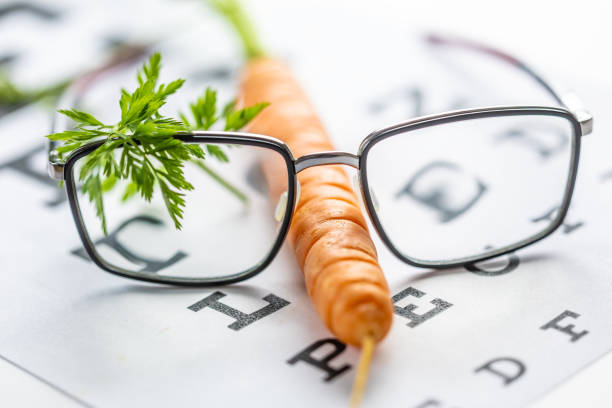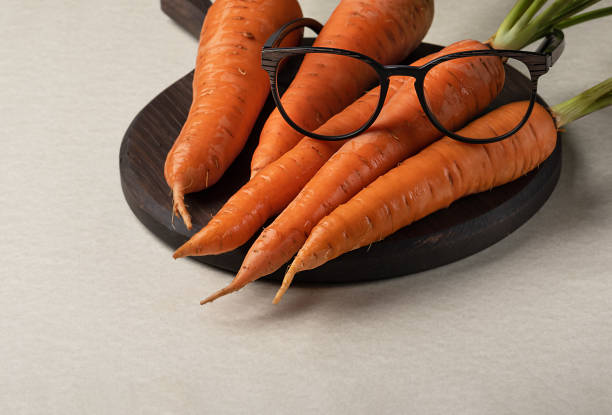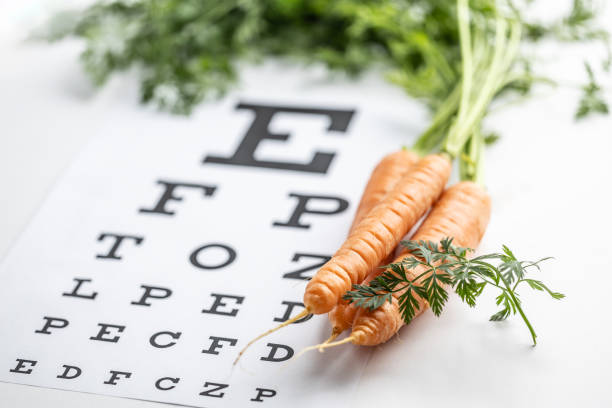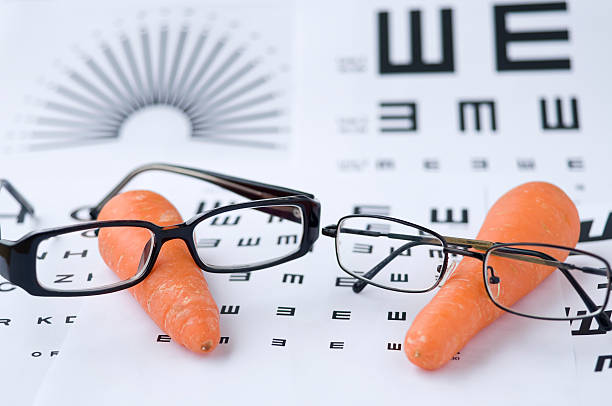Carrots are often celebrated as a superfood for better eyesight, but is there any truth behind this claim? For years, people have been told, “Eat your carrots to see better.” While carrots do play a role in eye health, the story is more complex than that. In this blog, we’ll uncover the truth about carrots, nutrition, and how they affect your vision.
The Link Between Carrots and Eyesight

The belief that carrots improve eyesight dates back to World War II. British pilots were credited with better night vision thanks to a steady carrot diet. While this was partly wartime propaganda, there is some truth to the connection.
They are rich in beta-carotene, a type of vitamin A. Your body converts beta-carotene into retinol, which is essential for eye health. Retinol helps maintain the surface of your eyes and supports the proper functioning of the retina, the part of the eye that detects light.
Why Is Vitamin A Important for Vision?
Vitamin A is crucial for maintaining good eyesight. Here’s why:
- Prevents Night Blindness
A lack of vitamin A can lead to night blindness, making it hard to see in low light. The retina relies on this nutrient to produce rhodopsin, a pigment that helps your eyes adapt to darkness. - Maintains Eye Surface Health
Vitamin A supports the cornea, which is the clear outer layer of the eye. Without enough vitamin A, you may experience dryness or irritation. - Reduces the Risk of Certain Eye Disorders
Getting enough vitamin A may help prevent conditions like macular degeneration and cataracts, both of which can impair vision as you age.
How Many Carrots Do You Need?

While carrots are an excellent source of vitamin A, they are not the only way to meet your daily needs. A medium-sized carrot contains about 509 micrograms of vitamin A, which is more than half the recommended daily intake for most adults. Eating one carrot a day can provide a healthy boost to your vision and overall health.
But can eating more carrots supercharge your eyesight? Not really. Once your body has enough vitamin A, consuming extra won’t improve your vision further.
Other Foods That Benefit Your Eyes
Carrots aren’t the only food that helps with eye health. Here are some other nutrient-packed options:
- Leafy Greens
Spinach, kale, and collard greens are rich in lutein and zeaxanthin, two antioxidants that protect your eyes from harmful blue light. - Citrus Fruits
Oranges, lemons, and grapefruits are high in vitamin C, which helps reduce the risk of cataracts. - Fatty Fish
Salmon, mackerel, and sardines are packed with omega-3 fatty acids, which support the retina and reduce dry eye symptoms. - Eggs
The yolk contains both lutein and zeaxanthin, along with zinc, which helps maintain the retina’s health. - Sweet Potatoes
Like carrots, sweet potatoes are loaded with beta-carotene, making them another great choice for eye health.
Myths About Vision and Nutrition
It’s easy to get caught up in myths about what foods can or cannot do for your eyesight. Here are a few misconceptions:
- Myth: Carrots Can Fix Vision Problems
While carrots support eye health, they won’t correct conditions like nearsightedness or farsightedness. These require corrective lenses or medical treatment. - Myth: Eating More Carrots Improves Night Vision
If you already get enough vitamin A, eating extra carrots won’t make you see better in the dark. - Myth: Diet Alone Can Cure All Eye Problems
A healthy diet is important, but it’s not a substitute for regular eye exams or medical intervention when needed.
How to Include Eye-Healthy Foods in Your Diet

Want to give your eyes some extra love? Here are a few simple meal ideas:
- Carrot Smoothie
Blend carrots with orange juice, a banana, and a handful of spinach for a nutrient-packed drink. - Salmon Salad
Toss mixed greens, cherry tomatoes, and grilled salmon with a lemon vinaigrette for a delicious lunch. - Egg and Veggie Breakfast
Scramble eggs with spinach, mushrooms, and bell peppers for a healthy start to your day. - Sweet Potato Fries
Bake sweet potato wedges with olive oil and a sprinkle of paprika for a tasty side dish.
The Bottom Line
Carrots are a great way to support your eye health, thanks to their high beta-carotene content. However, they are just one piece of the puzzle. A balanced diet rich in various nutrients is essential for maintaining good vision and preventing eye problems.
While carrots won’t give you superhuman eyesight, they’re a delicious and nutritious way to care for your eyes. Pair them with other eye-friendly foods like leafy greens, citrus fruits, and fatty fish to keep your vision sharp.
Remember, regular eye exams are also key to catching and treating issues early. So, enjoy your carrots, but don’t forget to look at the bigger picture when it comes to eye health.

